- Home
- Douglas Niles
Ironhelm mt-1
Ironhelm mt-1 Read online
Ironhelm
( Maztica trilogy - 1 )
Douglas Niles
Douglas Niles
Ironhelm
These pages commence the Chronicle of the Waning, enscribed by Colon, Grandfather Patriarch of the Golden God, Qotal.
My labors, as always, are dedicated to the greater glory of Qotal, the Plumed One, Iridescent Ancestor of the Gods.
The Time of Waning comes upon us, arriving all but unnoticed by the masters of Maztica. The nobles and warriors of the great city of Nexal care for naught but conquest and battle, gaining tribute and prisoners from the subjugation of each neighboring state.
The priests of the younger gods cannot see beyond their need for more sacrifices to feed their bloodthirsty masters. Crimson Tezca, god of the sun, requires blood every day to coax his flaming self into the skies at dawn. Blue Azul, rain god, prefers to claim the lives of little children in exchange for his body's life-giving moisture.
But none is so greedy for blood as Zaltec, patron deity of the Nexala. His crimson brand marks the chest of his most loyal followers, and long columns ascend the pyramids to offer him their hearts, in willing or unwilling sacrifice. Such is the glory of Zaltec!
No god of the True World is so mysterious, so secretive as bloody Zaltec. Zaltec, the great god of war! Vast ceremonies, these wars, ceremonies fought for the honor and glory of Zaltec. The armies of Nexal go forth and conquer Pezelac, that they may claim captives. They do battle with the forces of fierce Kultaka, and both sides come away with many captives for the altars of Zaltec.
In Nexal, warriors, priests, lords, sorcerers, all struggle for their own ends, complacent in the eternity of Maztica, the True World. They compete, they gain victories and suffer defeats, all for their pathetic goals! All of them are blind! All of them, fools!
Only I, Coton, see the True World as it changes. I see the commencement of its decline, the Time of Waning that has long been foretold by us, the faithful priests of Qotal. Other priests speak only of more sacrifices, grander pyramids, brighter temples. I see a time when temples vanish altogether and pyramids become heaps of unrecognizable stone!
Qotal is the vessel of my vision. His faithful are few, for most of Maztica has turned toward worship of Zaltec and his bloodthirsty offspring. Once Qotal presided as the hero of our forefathers, esteemed by the True World. It is Qotal who brought mayz to the world, so that mankind would always have food. For centuries his benign vision watched over the peoples of Maztica.
But now Qotal is supplanted by Zaltec across the True World. People follow the god of war blindly, ignorant of the peaceful wisdom offered by Qotal. Especially here, in Nexal, has Zaltec of the Bloody Hand taken the place of honor once reserved for the Plumed One.
I am sworn to silence by my station. I say nothing to the mighty of Nexal. Instead, my tale becomes the Chronicle of the Waning. As my immortal master, the Silent Counselor, so wills, I observe and record, a witness but not a participant to the unfolding of history.
The individual threads of chaos remain diverse, most of them unknown to me. My auguries show an emperor god, mightier than any ruler in the history of Maetica, yet fatally weak and flawed. But they also tell the story of a little girl, dwelling in happy innocence near the Heart of the True World; and the tale of a youth, countless day-runs distant. I know not how these strands will entwine in the course of the Waning. Only the passage of time, the swirling eddies of fate, can bring these threads together.
But when they bind, they shall form a knot of surpassing strength and cataclysmic import.
THREADS
He couldn't tell whether it was rain or blood running into his eyes, but his vision blurred to nothing. Night settled around him, but it was a night illuminated by hellish fires. The sharp crack of deadly magic-lightning bolts, he suspected — barked beyond the tree line, then bugles blared and he felt the pounding of heavy hooves through the ground.
Wiping his face, he found that only mud obscured his vision, and soon he could see again. Flames spouted from most of the town, and some trees had caught fire, but otherwise the night was dark. His ears told him that the battle had moved on.
He looked at the gashes in his steel breastplate and chuckled wryly. His helmet was gone, and around him lay the bodies of his men — his boys, really. They were young, cheerful; they were farmers gone to war, and they had been massacred by warriors. The bitter laugh died in his throat as he raised his eyes. Angrily he blinked at the tears that stung his eyes.
He flinched suddenly at the touch of a slender hand and turned to see an elfin face. A small woman stood before him, partially wrapped in a deep robe. Her skin was remarkably pale, almost milky white. It seemed to glow and fade in the reflected light of the flames. Suddenly a great fireball exploded not far away, and he saw her pale eyes, pupils dilated, studying him and soothing him.
"Captain, you are hurt," she said.
"The battle is lost." He sighed.
"Lost by the fools who commanded! You and your men fought well."
"And died well." He was too exhausted to feel anything except a vague bitterness. He saw the banner, the crimson figurehead outlined in silver against the bright red field, now trampled in the mud, torn by sword and dyed almost black in the blood of the young soldiers who followed it.
Horses lumbered near, their black-helmeted riders on the prowl for stragglers. The pale woman raised her hand and said something very strange, and the horsemen rode past. Mud splattered onto the pair from the great hooves, but the knights took no notice of the two survivors. Instead, the riders paused some distance away, looking toward the fires, seeking targets silhouetted in the light.
The man felt the soft protection of magic, invisibility created by the woman and now cloaking them. In another minute, the knights charged off into the night, and the man and woman heard the screams of men caught by lance or mace or hoof.
"Red is a poor color for a banner," he decided absently, looking at the bloody spots on the tattered cloth. "It will have to be something else."
The woman took the man's arm and began to lead him away, though there was no way to tell which way to go. The battlefield surrounded them, fire and smoke and the clamor of battle in all directions as far as they could see and hear.
"Disaster," he realized. "The alliance is finished. The war is lost."
"But you. Captain Cordell, you will live to fight again. And I will fight beside you."
He nodded vaguely. How did this woman know his name? The question seemed quite unimportant, the confidence of her assertion instead focusing his attention and his agreement.
More and more shadowy forms appeared, fleeing in all directions, followed by the great waves of horsemen and their riders, so eager to slay and keep on slaying.
But always the riders passed the two figures without seeing them. Once a great leering beast, twice the height of a man, sniffed suspiciously and turned toward them. The troll chomped its wicked fangs and crept closer.
The woman raised her hand and pointed, speaking a sharp, alien sound. A tiny globule of flame appeared, flickering from her fingertip and flying toward the troll. The monster blinked stupidly, and then the fireball erupted, engulfing the creature in a blossoming sphere of incredible heat and flame. It screeched piteously, falling to the ground and writhing in its death throes, as the woman once again urged the wounded captain into the night.
"Gold," he said, stopping suddenly. The battle had by now fallen behind them.
"What?" She, too, stopped, facing him. Her hood fell back, and he saw her snowy-white hair, her pale, almost bloodless skin. The tip of one ear protruded from her hair, and he saw its point, the characteristic mark of an elf. He was not surprised.
"Gold," he explained. "That will be the color of m
y banner. Gold."
Erixitl scampered up the steep trail, taking little note of the sheer drop to her left, nor of the bushy slope looming above to the right. Instead, her wide brown eyes held fast to the winding footpath. Her long hair trailed behind her, a black plume floating easily in the air, decorated with feathers of red and green.
Around her rolled a tumult of green hills, mostly covered with the same tangled brush that bordered the footpath. Occasional terraces, supporting narrow and winding fields of mayz, circled some of the lower slopes.
The brown-skinned girl darted around a sharp switchback, still climbing. Her bare feet pounded the earth in a more measured cadence now as the strain of the ascent began to tell. Still, her round face glowed with some secret happiness, and as a small, whitewashed building came into view, she broke into a sprint.
"Father! Father!" Her voice, despite the wind swirling through the yard, carried strongly. In seconds, a dark skinned man appeared in the open door of the building.
"What is it, Erixitl? Is something wrong?" The man's dark eye's squinted along the mountainside to see if his daughter was being pursued.
"Oh, no, nothing is wrong!" The girl stumbled to the cottage and gasped for breath. The flush of exhaustion and excitement showed clearly, even through her dark, coppery skin. "Payatli, it's wonderful! Oh, please, Father, you must let me — you have to let me — "
A scowl came over the man's features, and the girl stopped in midsentence. He looked wearily into his daughter's eyes. Why did she not drop her gaze as was proper for a girl? This stubborn pride disconcerted her father almost as much as it annoyed the priests of Zaltec, whom Erix insisted upon studying, every time her father took her down the mountain to the village of Palul.
Yet those same eyes were so undeniably beautiful, so keen and observant, that sometimes the father wondered if she did not share them with others as a gift for those blessed with her gaze. A gift from Qotal himself, shedding beauty on those he had left behind. Perhaps this was why the priests found her gaze unsettling. The worshipers of Zaltec could never enjoy such beauty.
Erixitl studied her father and noted the cloth of fine cotton in his hands. One corner of the cloth promised a look at the finished magic, for this small patch glowed with a brilliant profusion of colors — reds, greens, blues, violets, and many more hues, all bursting with a supernatural iridescence far brighter than any paint or dye could impart. As she looked at her father's work of plums, or feathermagic, Erix could anticipate his next words.
"Payatli, eh? You don't call me 'Most Honored Patriarch' unless you wish to get out of your chores! Is that it?"
"Please, Payatli!" Erix almost dropped to her knees, but some inner reserve of pride held her on her feet, meeting her father's steadily darkening gaze. "Terrazyl is going to Cordotl with her brothers and her father to trade for salt! May I go with them? Look at the sky, Father! Today, for certain, I could see the temples and pyramids of Nexal! Please, Father! You promised I could see the city this year!"
The featherworker grimaced as if in pain, and then he sighed. "Indeed I did. But your brother is attending his class at our own temple — not as grand as the Temple of Zaltec in Nexal, to be sure, but an important duty…"
Erix felt growing disappointment. Her knees trembled and her lower lip quivered, but she did not show her dismay. She had forgotten that her brother would not be here today. In truth, his apprenticeship was a high honor, for should he progress to the priesthood, he would hold great status in the village. Though her father was one of the few who preferred instead the gentle worship of Qotal, the Plumed One, he did not discourage his son's ambition toward the priesthood of Zaltec.
She knew that her request was hopeless, even as her father finished the explanation.
"Someone must tend the snares, and that must be your task today. You would not leave the birds to suffer longer than necessary, would you? Or allow the feathers to suffer damage?"
Erix knew the debate was over, but her emotions pushed forth words in a reckless torrent, a torrent she regretted even as it flowed.
"But you promised, Father! Three times we've gone to Cordotl, and each time the haze or the rain comes so that I cannot see the city! This is my tenth summerrand, I must see Nexal!" Finally she bit her tongue and stood still, awaiting the expected blow.
But no blow fell. Instead, her father replied softly, his voice regretful. "And so you will, my daughter. Now, desist in this unseemly pleading."
"Very well." Somehow she kept her voice from trembling. She turned and started for the twisting path leading past the house and sharply up the mountainside.
"Wait!" the featherworker called to his daughter, perhaps in guilt. Or, perhaps, because a frightening premonition showed him the life path awaiting this proud, strong girl. He pulled her to him in a firm hug.
"Soon, Erixitl, I will take you myself. On the sunniest, the clearest of days! We will see the great pyramid, all the temples around the grand square, and the lakes themselves — a turquoise blue that will bring tears to your eyes!"
"And the Temple of Zaltec? Will we see that?"
The man's face clouded briefly at the thought of that bloodstained altar, but he masked his feelings. "Yes, my daughter, even the Temple of Zaltec. We shall see all of Nexal from the mountainside of Cordotl."
Erix sniffled quietly, feeling a little better. She returned her father's hug, and then turned toward the narrow path. "I will see to the snares."
"Erixitl." She turned in surprise as her father called again. He took something from his pouch. "I have been waiting to give you this. Perhaps this is a good time."
She stepped forward and saw that it was a small token, made from tufts of golden and emerald downfeathers around a smooth turquoise stone. The stone rested in a small ring of jade and dangled from a leather thong. The blue and green stones gleamed, but it was the feathers that gave the pendant its true beauty. Soft and fragile, they seemed to hold the token motionless, weightless, as if it floated easily in the air. Erix scarcely dared to breathe, it was so entrancingly beautiful.
"It carries the memory of our ancestors and an earlier time of greatness," explained the featherworker. "Gold and green are the sacred colors of Qotal. The turquoise shows you his eye, watchful and benign, the color of the sky."
"Thank you, Father! It's beautiful!" Erix's heart thrilled at the delicate workmanship, the brilliant colors. She did not understand his words about the god, Qotal, for to Erix, gods were gods. But she sensed a beauty and peace within the token that differed significantly from the colorful but violent rituals of Zaltec.
"I will cherish it forever!" She embraced her father impulsively, and his own arms held her tightly for several moments.
"I hope so," said the featherworker, a trifle wistfully. He was a man of considerable talent and skill. He had created magical fans for the High Counselor of Palul, and his goods had been carried to the market in Nexal, where he had been told they commanded a fine price. Now he looked at the small medallion in his daughter's hands, and he concluded with conviction, "I hope you cherish it, for I can give you nothing greater."
Erix turned toward her chore with energy. The path she started up made the trail to her house seem like a broad avenue. Now she ascended a steep mountainside covered with verdant growth. She grasped vines and roots with her hands, climbing like a monkey, and soon gained five hundred feet. At last she reached the crest of the brush-covered ridge behind her family's home.
Here she paused, still breathing easily. She looked across the broad vista below her, green slopes falling thousands of feet to the bottom. Flat green fields of mayz lined the valley floor like a lush carpet, and indeed such it was: a carpet of food. The vale curved away to her right, and beyond it she could see another broad mountain, blue in the haze of distance.
Cordotl. The trading town that stood at the foot of that mountain, she knew, offered a clear vista of the broad valley of Nexal and its gleaming lakes. How clearly she imagined the jewel shining from the
center of those lakes, the city of Nexal, the Heart of the True World. With a little sigh, she turned away, knowing that her first glimpse of that storied metropolis would have to wait.
She tried reminding herself of the importance of the feathers she now sought, of the greatness of her father's craft. Indeed, practitioners of pluma magic were the most important citizens of the Nexala! Of course, her father's feathermagic was of the simple, country sort. It consisted largely of feathered armor for the warriors of Palul and nearby towns, light yet sturdy vests that could shatter a flint spear tip or deflect the jagged obsidian blade of a sword; or the occasional floating litter for the speaker of the village or as a tribute to Nexal.
She had heard about, but never seen, the grand works crafted by the feathermasters of Nexal: huge litters that could bear a noble and his entire retinue; great, swirling fans that cooled the palatial homes of great nobles and warriors; or vast lifts, soaring gracefully up the side of a great pyramid with their burdens of devout priests and weeping victims.
As Erix's thoughts drifted again toward those mystical sights of the city, she avoided her previous self-pity. Instead, she continued along the path, almost eagerly seeking the feathered quarry in her family's snares, confident that one day she would not only see but also be a part of the grandeur that was Nexal.
She looked off to the right as she took up the path. There, in the wilderness to the east, lay the lands of the dreaded Kultakans, fierce enemies of the Nexala. The Kultakans, too, were a nation of warriors, worshipers of Zaltec who eagerly fed the god's gory appetite on their sacrificial altars. A small nation compared to the mighty Nexala, the Kultakans were the only nearby tribe who had never been subjugated to Nexal.
Erix followed the trail along the narrow ridgeline. To her left sloped the familiar green slopes leading back to her home, and below that to the small town of Palul. Pausing at a curve in the trail, she could even see Palul's small pyramid, where her older brother studied the ways of the priests of Zaltec. She glared at the pyramid, but then turned away, sudden guilt overcoming her jealousy. In truth, to be a priest of the god of war was an honor any male Nexala would cherish!

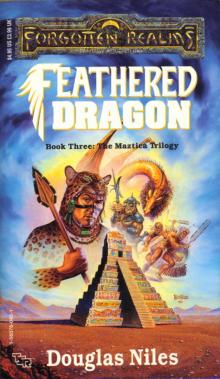 Feathered Dragon mt-3
Feathered Dragon mt-3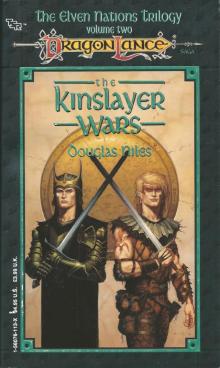 The Kinslayer Wars
The Kinslayer Wars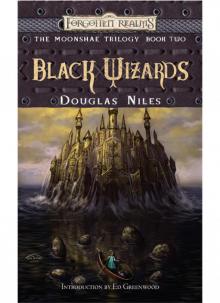 Black Wizards
Black Wizards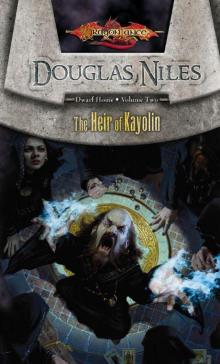 The Heir of Kayolin dh-2
The Heir of Kayolin dh-2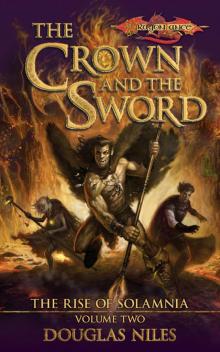 The Crown and the Sword tros-2
The Crown and the Sword tros-2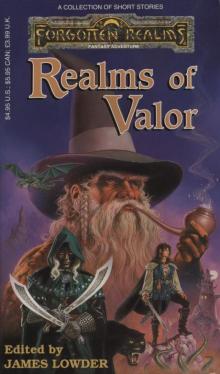 Realms of Valor a-1
Realms of Valor a-1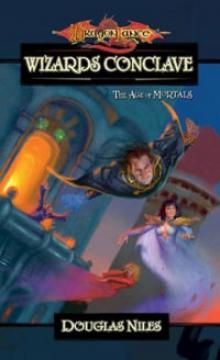 Wizards Conclave aom-5
Wizards Conclave aom-5 Fox On The Rhine
Fox On The Rhine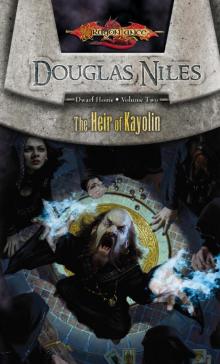 The Heir of Kayolin
The Heir of Kayolin Fox at the Front (Fox on the Rhine)
Fox at the Front (Fox on the Rhine)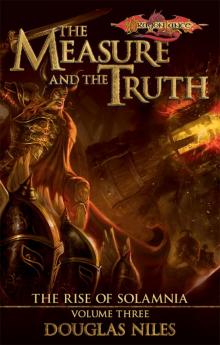 Measure and the Truth tros-3
Measure and the Truth tros-3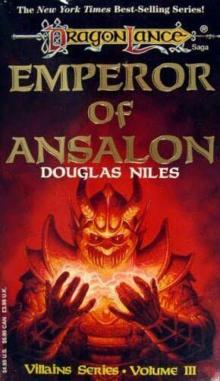 Emperor of Ansalon (d-3)
Emperor of Ansalon (d-3)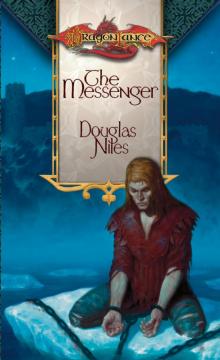 The Messenger it-1
The Messenger it-1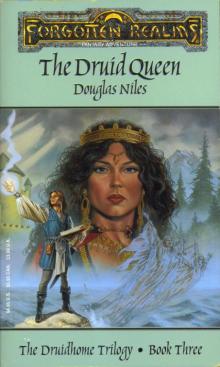 The Druid Queen tdt-3
The Druid Queen tdt-3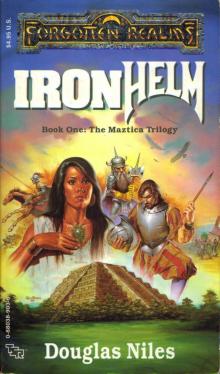 Ironhelm mt-1
Ironhelm mt-1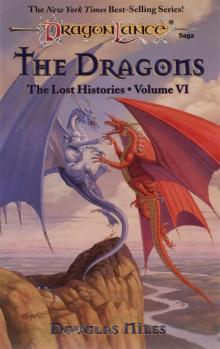 The Dragons lh-6
The Dragons lh-6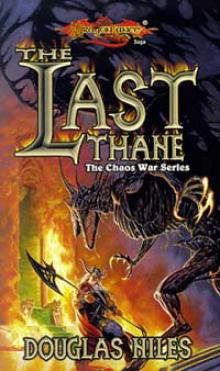 The Last Thane cw-1
The Last Thane cw-1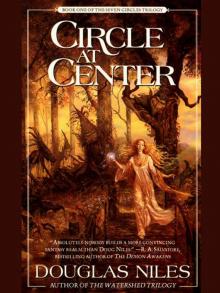 Circle at center sc-1
Circle at center sc-1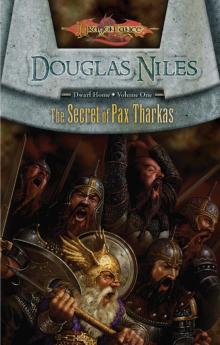 Secret of Pax Tharkas dh-1
Secret of Pax Tharkas dh-1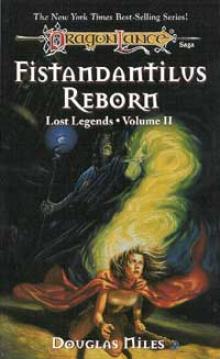 Fistanadantilus Reborn ll-2
Fistanadantilus Reborn ll-2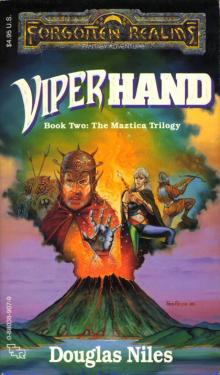 Viperhand mt-2
Viperhand mt-2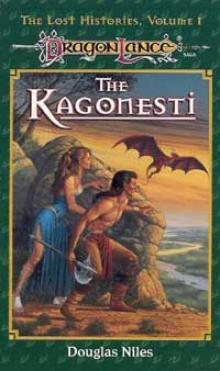 Kagonesti lh-1
Kagonesti lh-1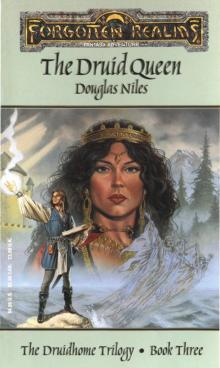 The Druid Queen
The Druid Queen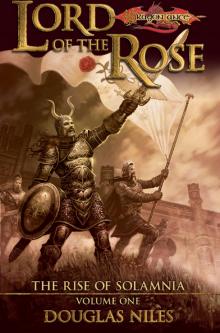 Lord of the Rose tros-1
Lord of the Rose tros-1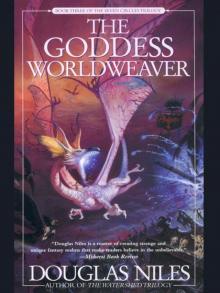 Goddess Worldweaver sc-3
Goddess Worldweaver sc-3 Eyeball to Eyeball (Final Failure)
Eyeball to Eyeball (Final Failure)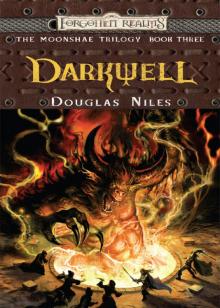 Darkwell
Darkwell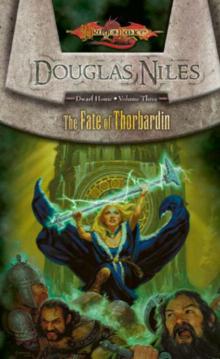 Fate of Thorbardin dh-3
Fate of Thorbardin dh-3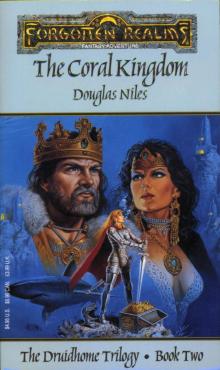 The Coral Kingdom tdt-2
The Coral Kingdom tdt-2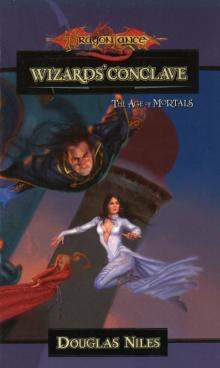 Wizard's Conclave
Wizard's Conclave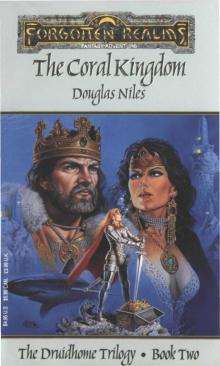 The Coral Kingdom
The Coral Kingdom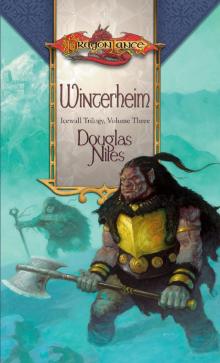 Winterheim it-3
Winterheim it-3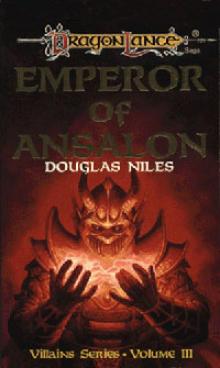 Emperor of Ansalon v-3
Emperor of Ansalon v-3 MacArthur's War: A Novel of the Invasion of Japan
MacArthur's War: A Novel of the Invasion of Japan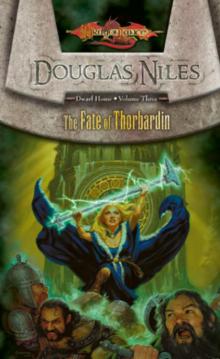 The Fate of Thorbardin
The Fate of Thorbardin The Rod of Seven Parts
The Rod of Seven Parts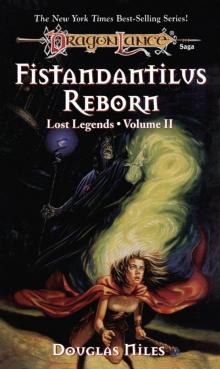 Fistandantilus Reborn
Fistandantilus Reborn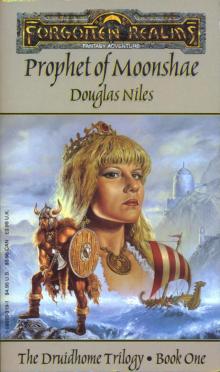 Prophet of Moonshae tdt-1
Prophet of Moonshae tdt-1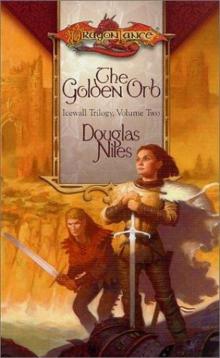 The Golden Orb i-2
The Golden Orb i-2